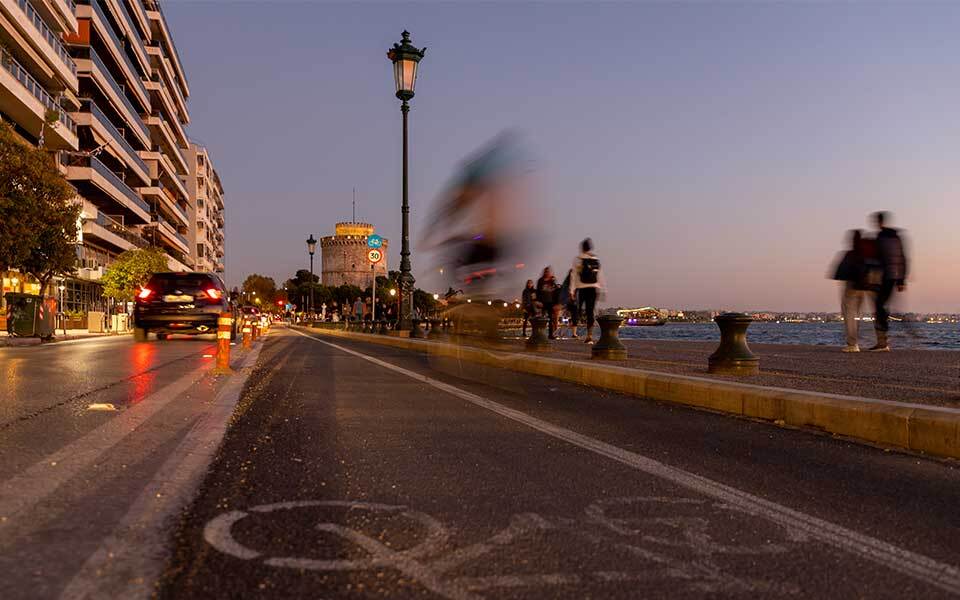1. Nea Paralia – Depot
The new seaside promenade, which the locals call the Nea Paralia, is the pride of Thessaloniki. After emerging from lockdown, residents have embraced open spaces as never before, and the Nea Paralia, which extends along the waterfront from the White Tower to the Concert Hall, is a particular favorite. Here you’ll see people jogging, cycling, or walking their dogs. If you head south from the White Tower, you’ll quickly come to the Umbrellas, a famous sculpture by the Greek artist George Zongolopoulos. This is the perfect spot for a selfie and other Instagrammable poses.
Moving on, you’ll see Macedonia Palace, one of the most famous hotels in Thessaloniki, to your left, followed by a number of interesting sights, including various structures, parks, benches, gardens and peristyles. The most enchanting view, however, is on your right. As the sun sets into the sea, the sky turns different hues of orange, red and purple. At the end of the full 3.5 kilometer-length of the promenade is the Thessaloniki Concert Hall. Classical concerts, dance performances and other events await you here (www.tch.gr).
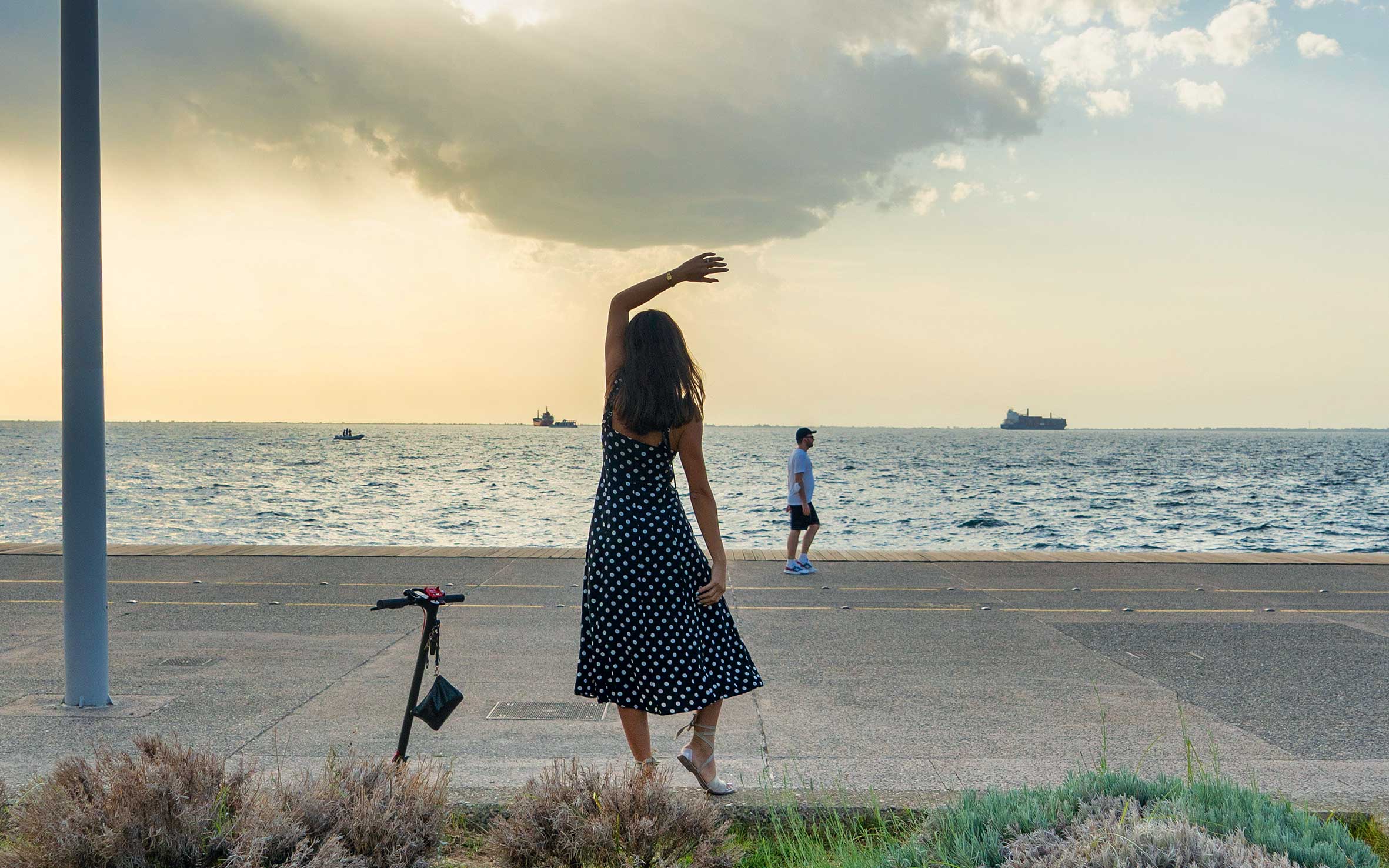
© Perikles Merakos
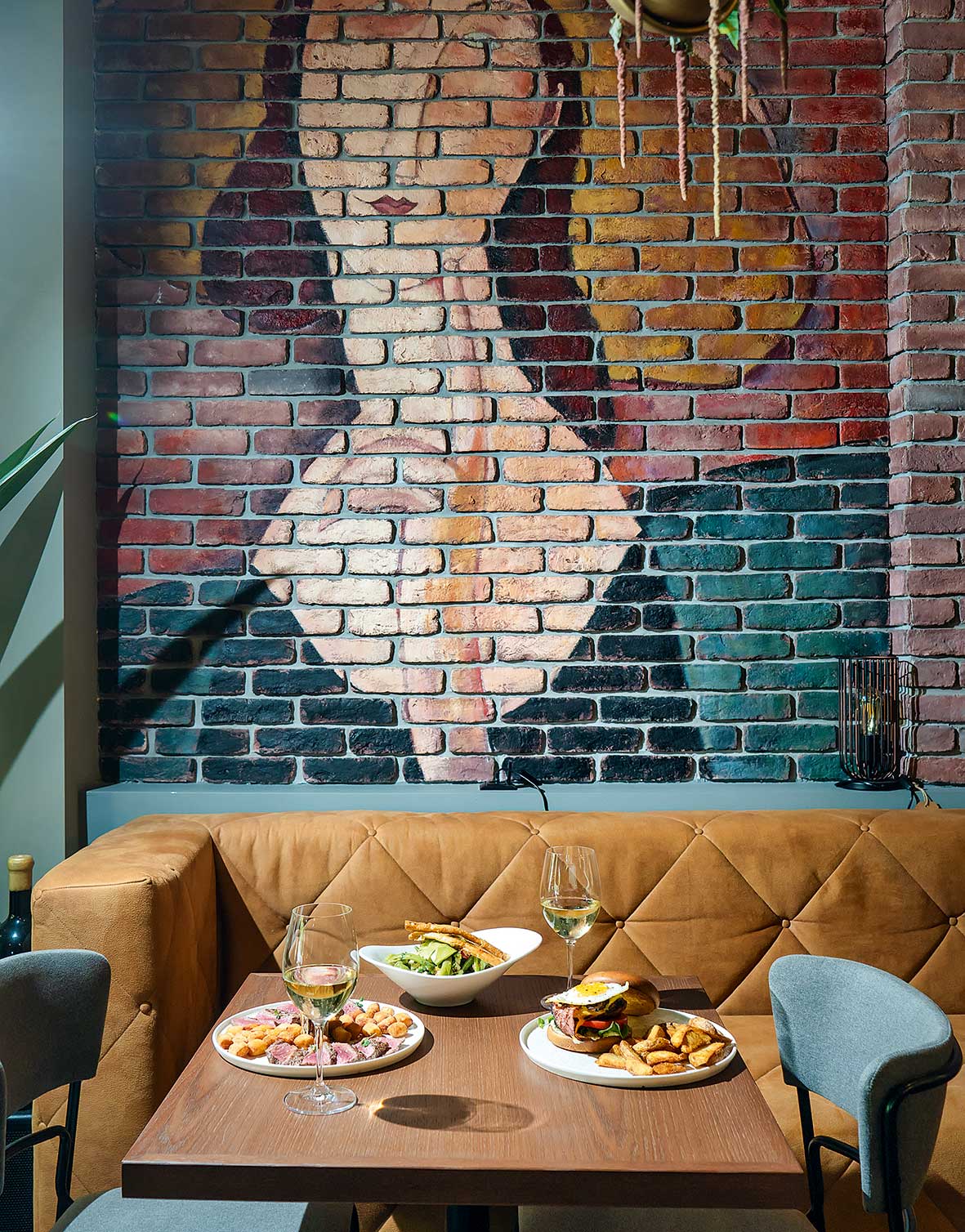

The suburb of Kalamaria, located further down the waterfront, is where you’ll find the Monmarti (92 Themistokli Sofouli) wine bar, offering tasty food options and a wide variety of Greek wines from across the country. Turning inland here, you’ll come to the neighborhood known as Depot, where the former tram depot was located. Head up tree-lined Vafopoulou Street and grab a seat at Oraio Depot (18 Vafopoulou) for coffee or meze, or go a little further for Birdie Num Num (28 Vafopoulou) for brunch and homemade desserts. This entire area is dotted with wonderful stately mansions from the city’s Belle Epoque era, when the name given to this area was “Exoches” (“Countryside” in Greek).
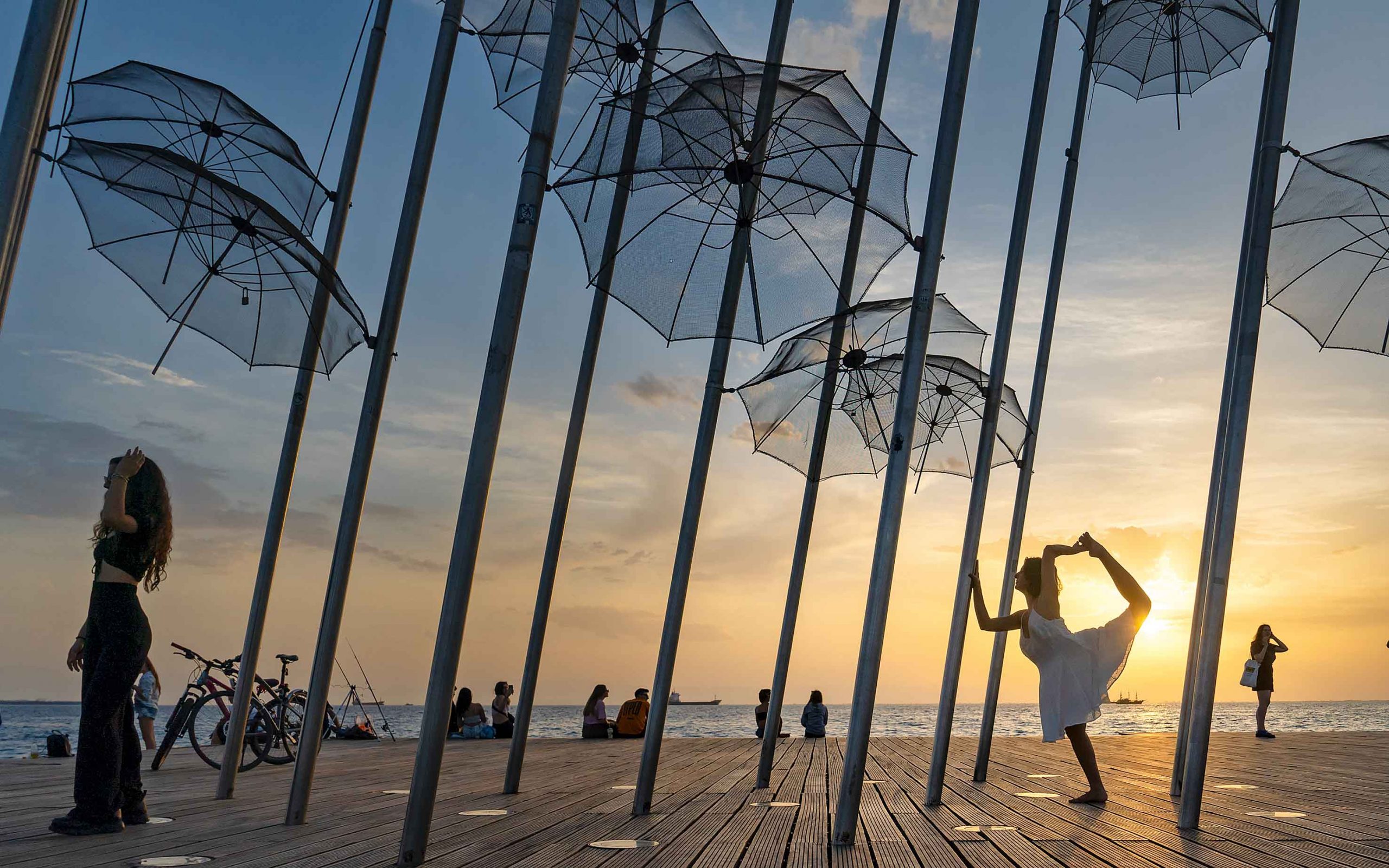
© Pericles Merakos
2. White Tower – Port
The White Tower is undoubtedly the city’s most famous landmark. Locals pass it every day, but many have never been to the top. It’s well worth climbing the spiral staircase, pausing on the way in the various rooms that narrate the history of Thessaloniki, just to admire the views of the city and the sea from the top (www.lpth.gr). The stretch of road that connects the White Tower with the warehouse district at the port is always busy. The bicycle lane here is often the cause of traffic delays, but exploring by bike, or even by electric scooter (they can be found at various points throughout the city and may be rented via app), is a fun way to get around.
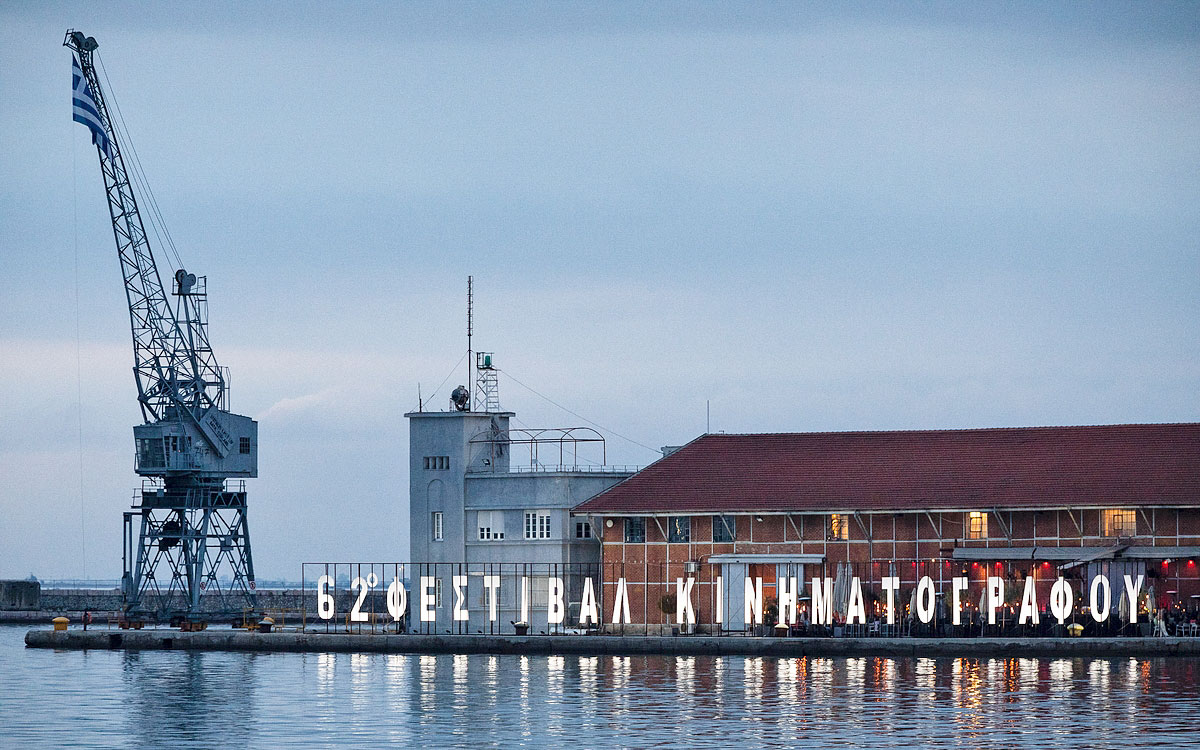
© Konstantinos Tsakalidis / SOOC
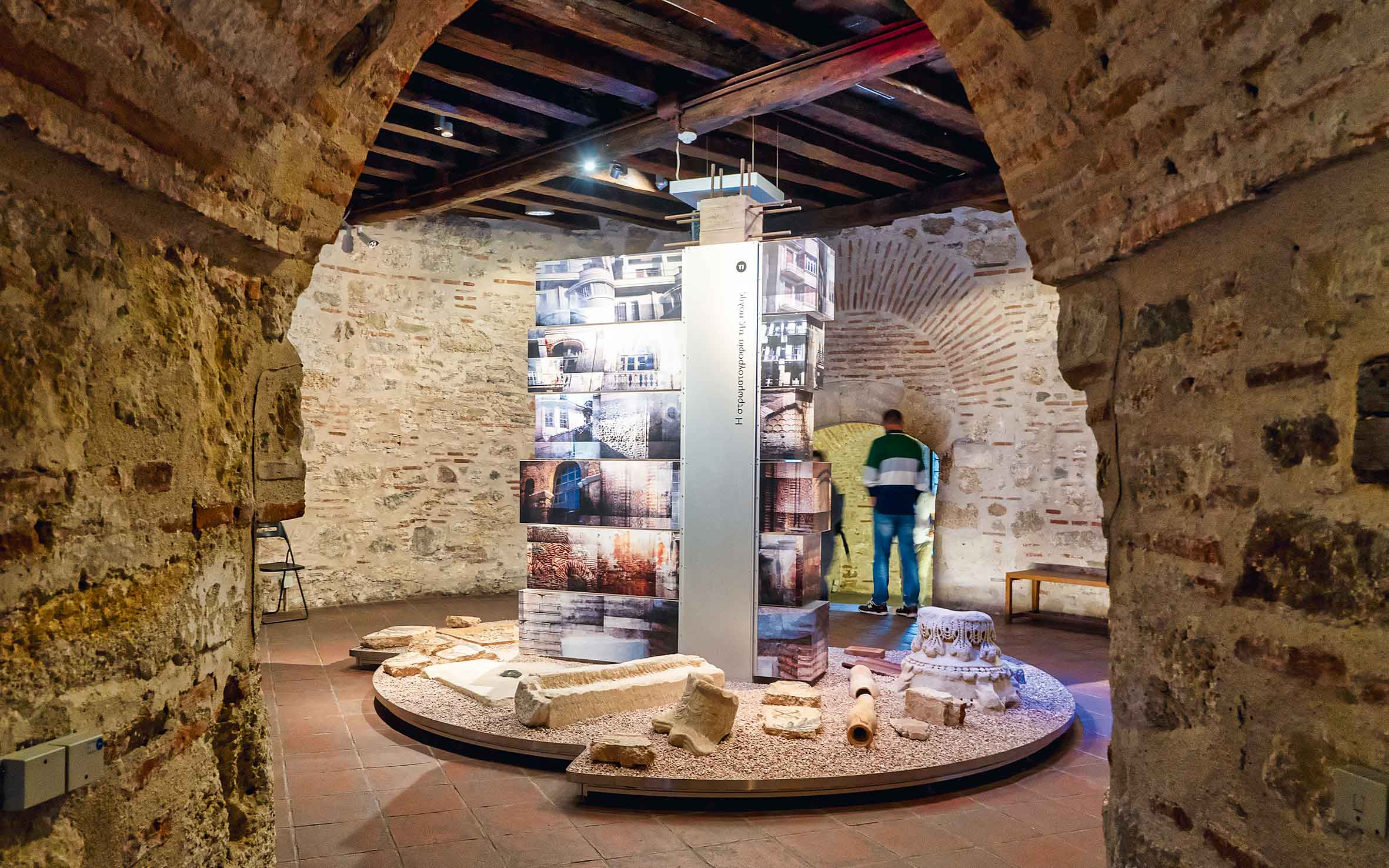
© Perikles Merakos
Dimitriou Gounari Street, or Navarinou Street as it is more commonly known, is mostly pedestrianized and stretches from the seafront far inland; it’s home to many street food options. Nearby, you’ll also find Diagonios (2 Fanarioton Square), famed for its delicious soutzoukakia (oblong meatballs) and for its authentic Greek-taverna feel. Walking along the waterfront on Nikis Avenue, you’ll come across Daios Luxury Living (www.daioshotels.com), a hotel for those who want to be right in the middle of things in the city center. The views of Aristotelous Square from the seafront are marvelous, too.
Down at the port, you’ll find renovated warehouses currently operating as cultural venues. The Thessaloniki Cinema Museum & Cinematheque, the Museum of Photography and the Experimental Center for the Arts are all located here (www.momus.gr), and offer fascinating temporary exhibitions and events. Every November, this is also where you can watch film screenings presented as part of the Thessaloniki International Film Festival (www.filmfestival.gr).
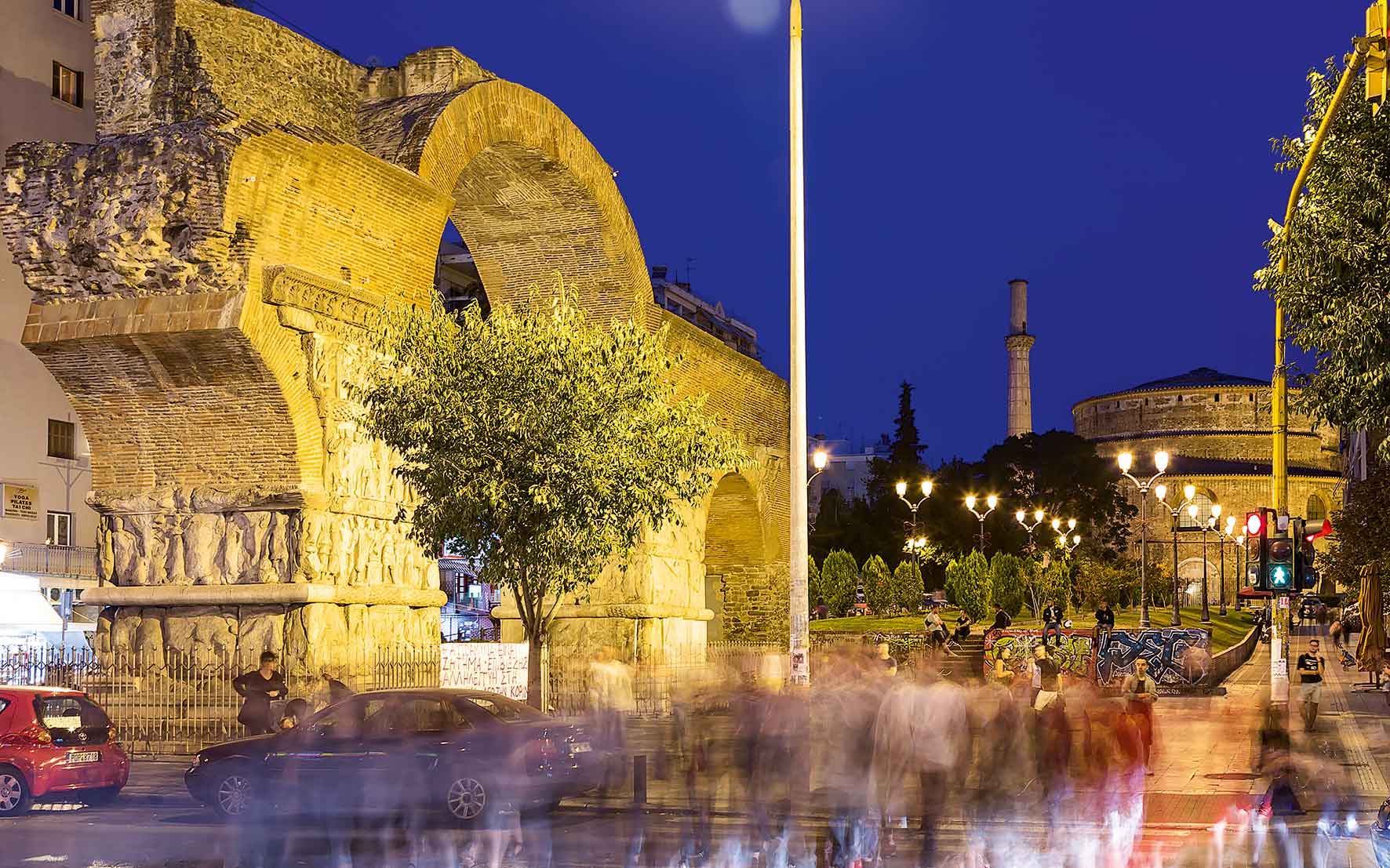
© Perikles Merakos
3. Rotunda – Navarinou
Pedestrianized Navarinou Street, which runs all the way to the Rotunda, is a meeting point for university students and the city’s youth, filled with cafés and takeaway food joints. This is the perfect spot to stop for a breather during your city explorations. Check out the ruins of the Palace of Galerius, and drop in at the café Astoria (17 Navarinou Square) for well-made coffees or some lemonade or sour cherry soda.
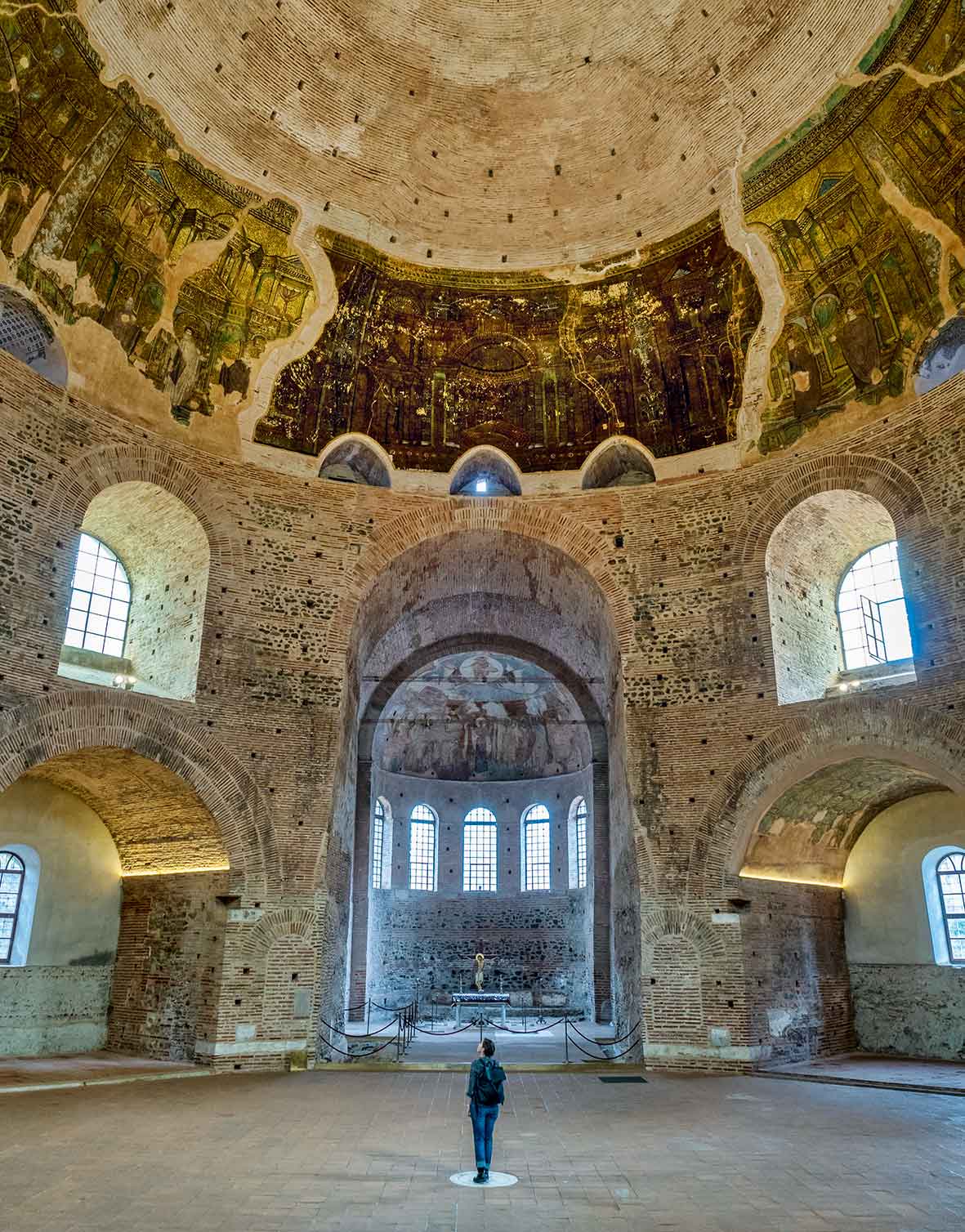
© Perikles Merakos
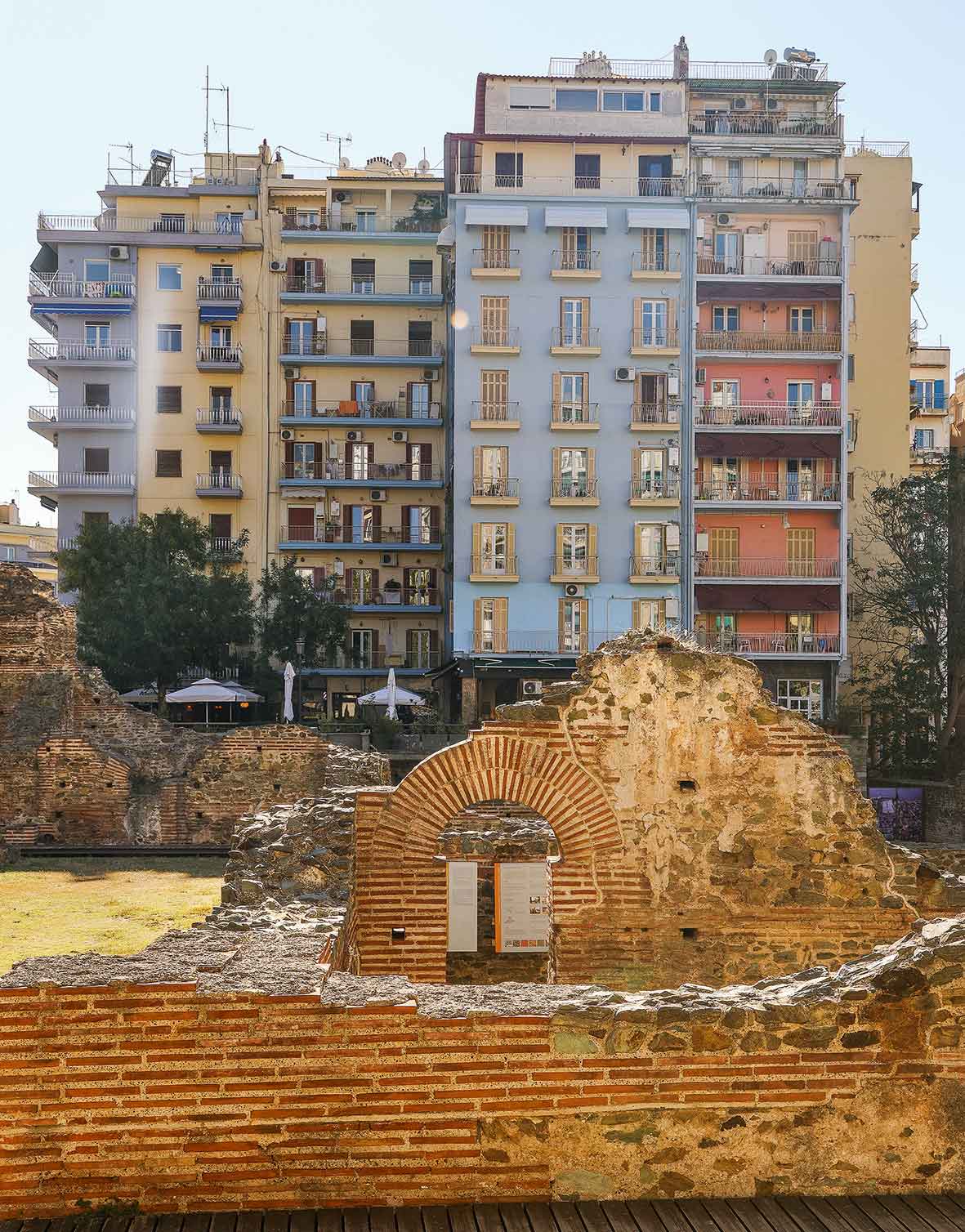
© Olga Deikou
On a narrow street behind the square you can try new Greek cuisine at Vari Peponi (4 Apellou), which serves specialties such as seafood giouvetsi (a stew made with orzo), pork with leek; and tuna with wild greens. Heading up Navarinou Street once more, you’ll encounter the famed Kamara – a classic meeting point for locals, the Kamara, or Arch of Galerius, was built in the 4th century A.D. to celebrate the Roman emperor’s victories against the Persians. The Rotunda, just a little further north, dates from the same period. It’s a domed circular structure that has been used as both a Christian church and a Muslim mosque. A UNESCO World Heritage Site, it has amazing architectural features and boasts wonderful mosaics.
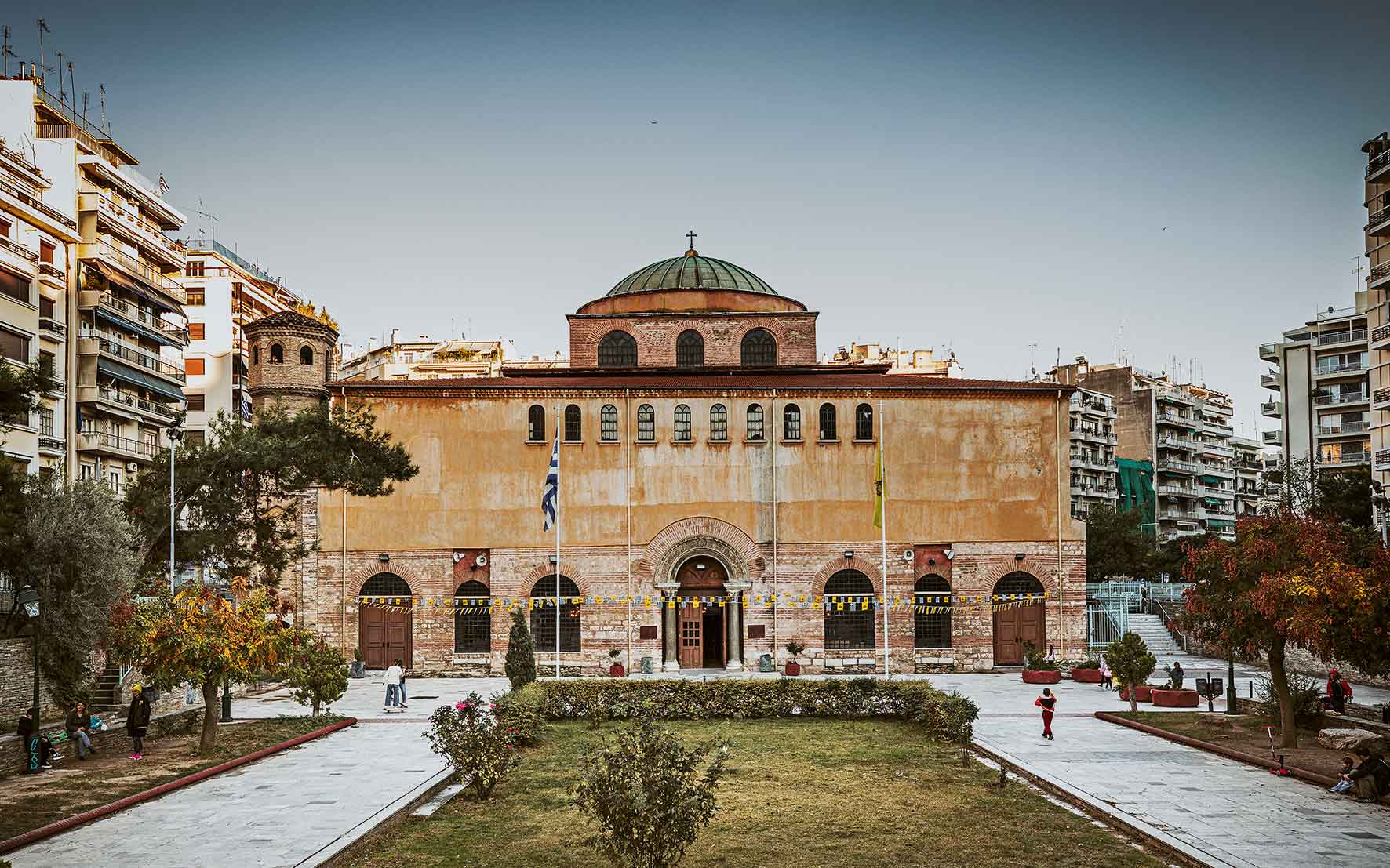
© Perikles Merakos
4. Aghia Sofia – Ladadika
One of the oldest and most important churches in the city is the Church of Aghia Sofia. A UNESCO World Heritage Site, it’s also the Cathedral of Thessaloniki. The regeneration of the surrounding area, and in particular the walkways of Iktinou and Aghias Sofias, have made this part of the city a new social hub for both locals and visitors. Before heading to Tsimiski Avenue, stop by Donkey the Breakfast Farm (3 Skra) for either a morning meal or brunch accompanied by exceptional coffee. Weather permitting, the courtyard is an ideal place to enjoy the sunshine.
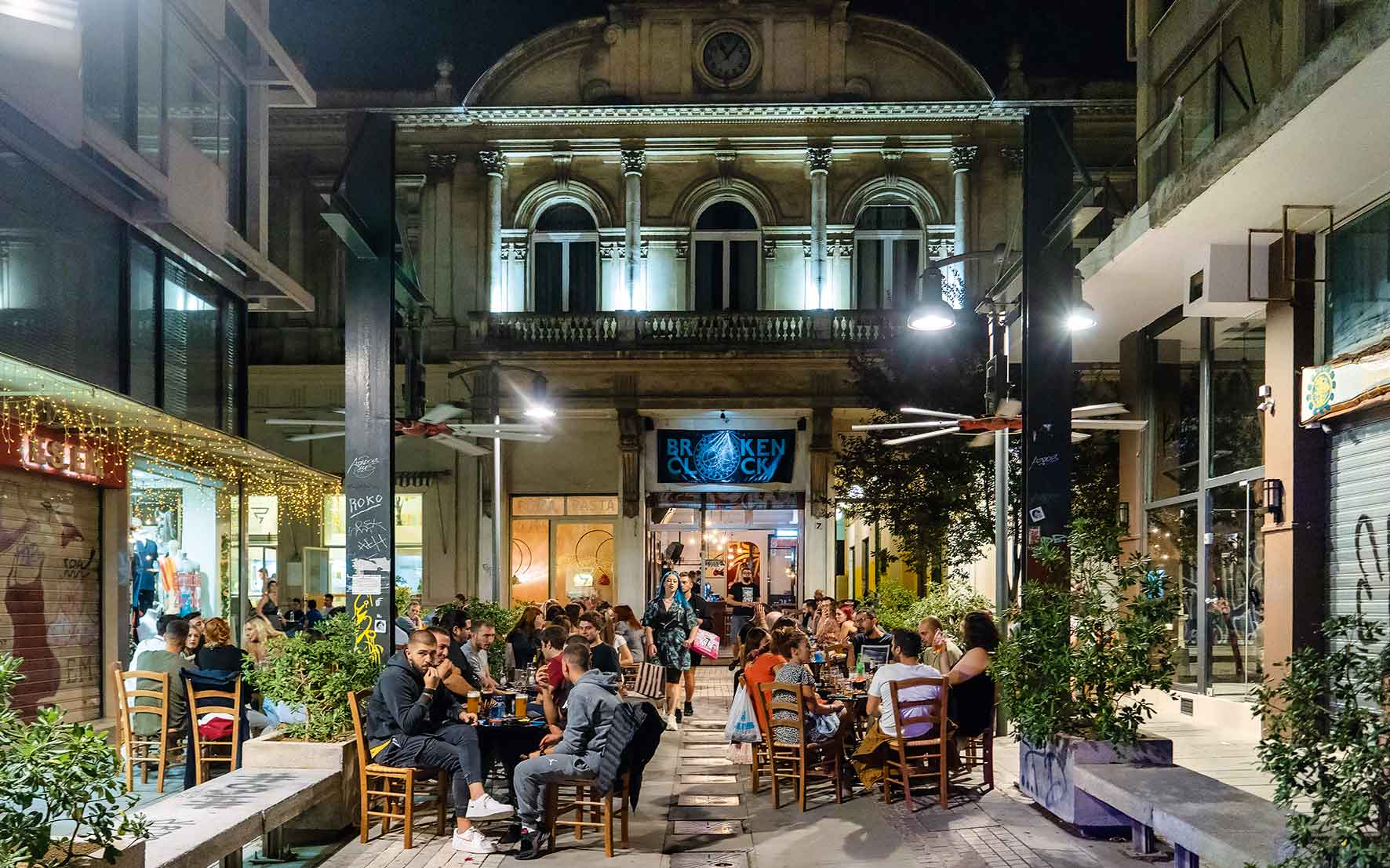
© Perikles Merakos
From the Church of Aghia Sofia, the walkway of the same name will take you to Tsimiski, the city’s main shopping street. Turn to your left off Tsimiski at Katouni Street for the Ladadika, where you’ll find tavernas, meze eateries and bars, or turn to your right for a walk through Ano Ladadika to visit more alternative bars, such as Gorilla (3 Verias) or Urania (4 Paikou).
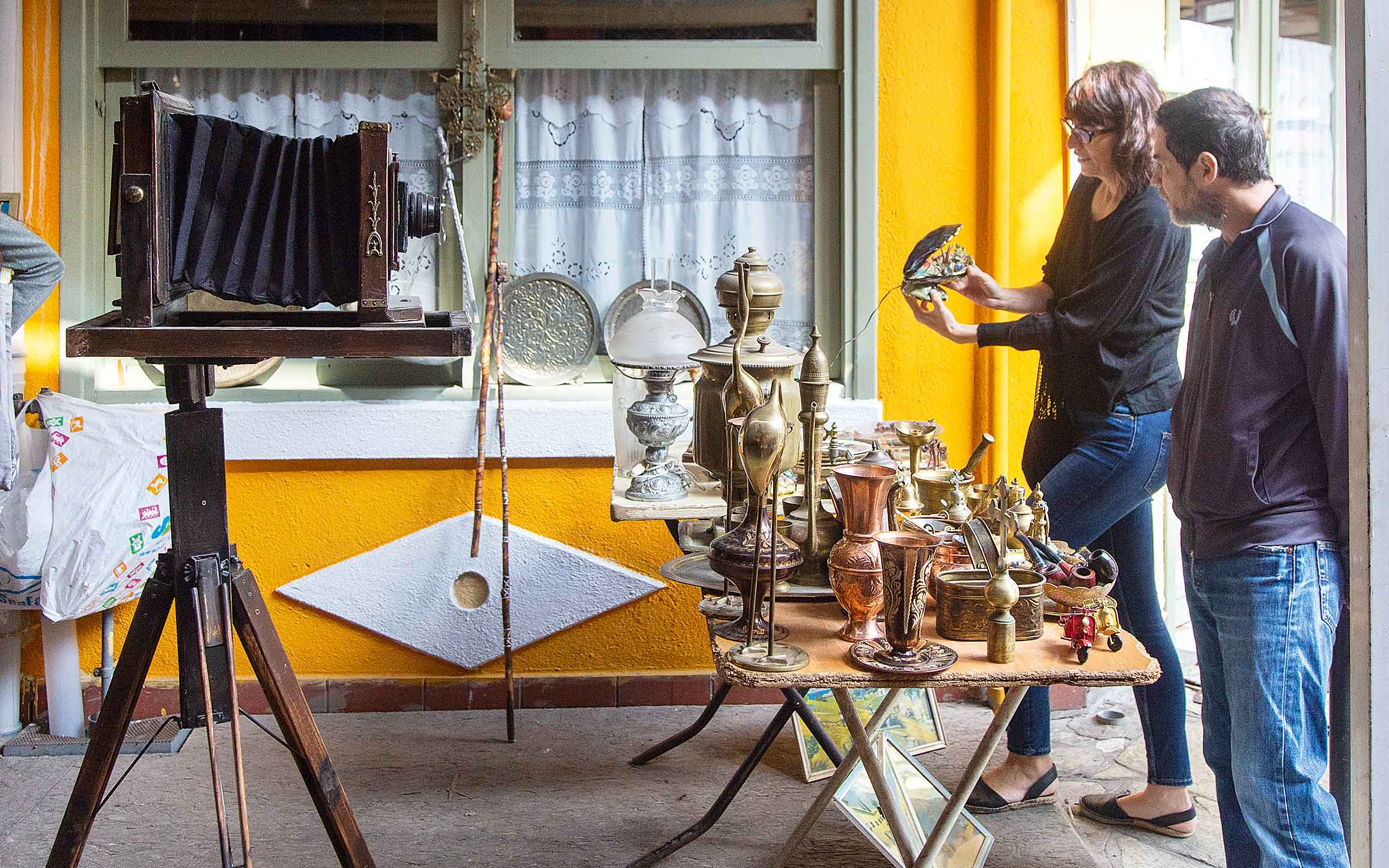
© Perikles Merakos
5. Aristotelous Square – Bit Pazar – Ancient Agora
If you head inland from the seafront at Aristotelous Square, the most famous square in the city, you’ll see the Olympion, a movie theater that houses the Thessaloniki International Film Festival, on your right; on the left is another important city landmark – the historic Electra Palace Hotel (9 Aristotelous Square, www.electrahotels.gr). Recently renovated, it boasts modern rooms and suites, as well as incomparable views from its roof garden. Continuing up Aristotelous Square, you’ll find Bey Hamam, one of the best preserved Ottoman baths in the city, at Egnatia Avenue. Built in 1444, it operated as a hammam until the 1960s. Today, it hosts temporary exhibitions about the history of Thessaloniki.
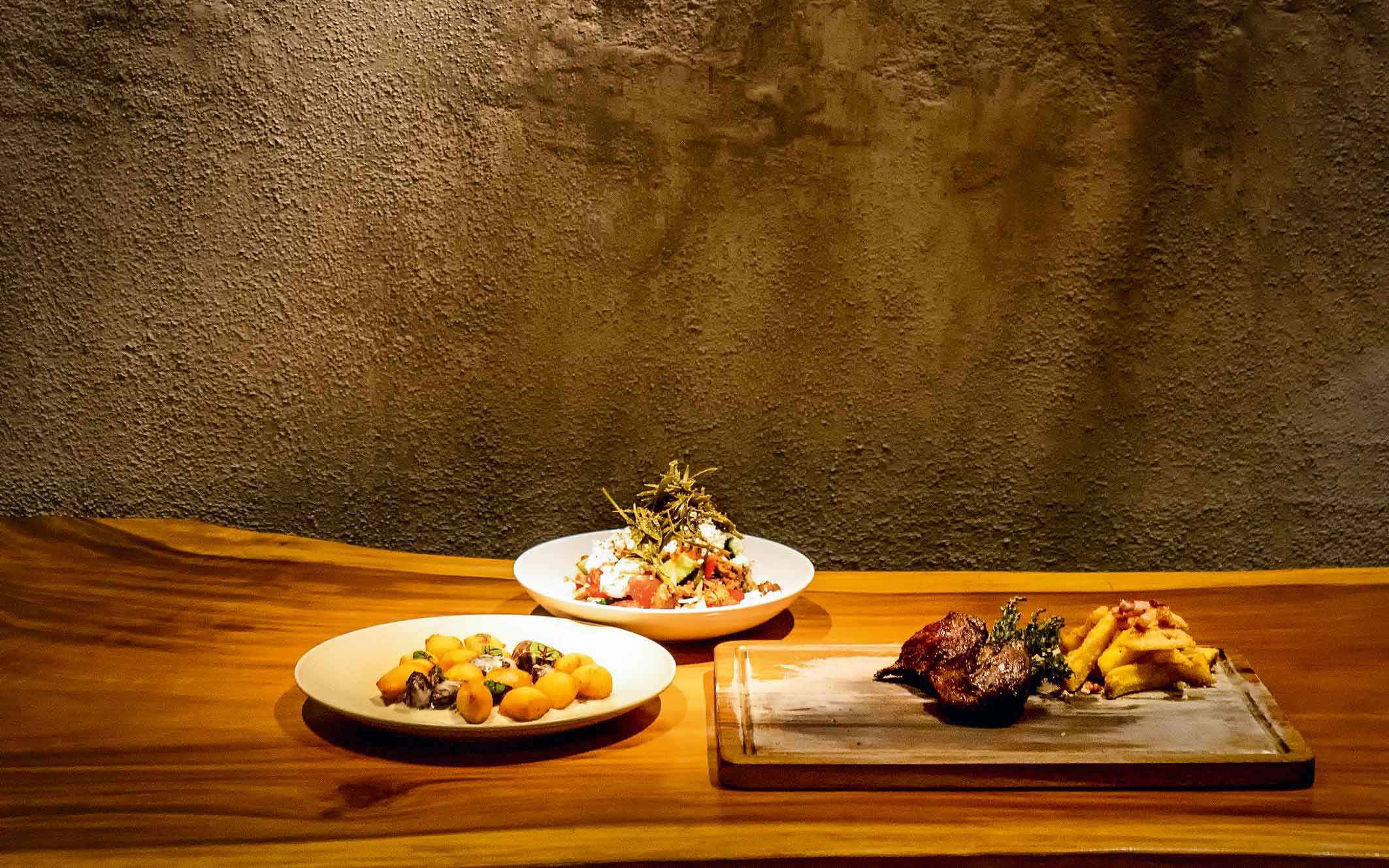
© Perikles Merakos
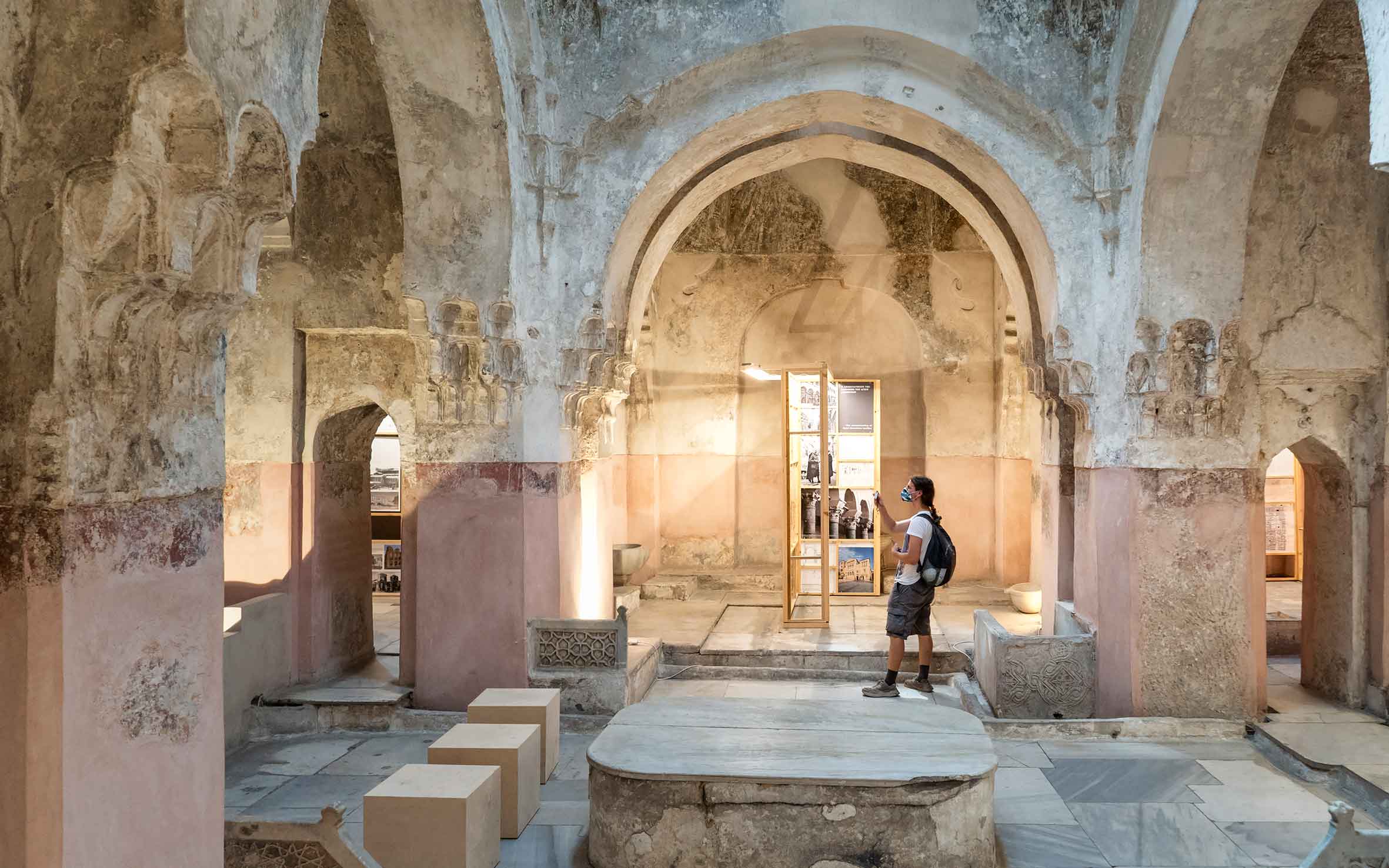
© Perikles Merakos
Still further up the square, you’ll find the ruins of the Roman Agora, while the area known as Bit Pazar begins on your left, a labyrinth of narrow streets and a small square that housed a market at the turn of the 20th century. Today, it’s usually inundated with crowds of young people frequenting the neighborhood’s numerous meze eateries. If you’d like to admire the Agora from above while also enjoying one of the best cocktails in the city, go to Nectar Distillery (13 Kleisouras), a bar boasting fantastic views and award-winning cocktails. For something more substantial, head off down to L’Albero (17 Filopappou) – a new arrival on the city’s gastronomic scene. The menu has wonderful options, and you should definitely try some of their different cuts of fine beef, served in thin raw slices that you cook yourself on a cast iron grill so you can have them just the way you like them.
Just around the corner, the café-deli Eklectic (59 Eleftheriou Venizelou) stocks fine Greek products from local producers and serves amazing coffee and freshly prepared sandwiches. Just a few streets down the road to the south and to your right, you’ll come across Stereo (3-5 Dimarchou Vamvaka), a bar where DJs play electronic music to enthusiastic clientele, especially on Saturday nights.

